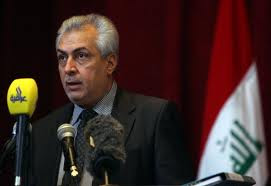One good news story for the Iraqi oil sector is that the new Gulf export terminal is expected soon to be up and running. The terminal, whose inauguration was delayed this month because of unfinished pipeline connections and testing, is expected to add some 900,000 b/d to Iraq's export capacity.
This increase in capacity is essential given the number of development contracts that Baghdad has awarded to IOCs in recent years, which are rapidly expanding production levels. However, increasing export capabilities seems all the more important at the moment on account of Iran's recent threats to close the Strait of Hormuz, through which most oil exports from the Gulf pass.
Tehran is threatening to shut down the waterway if the West tries to stop Iranian oil exports as a means of curbing its nuclear programme.
Baghdad can sympathise with Iran's anger over such western interference, but is alarmed at the prospect of having its oil exports curtailed by such a closure. Although the Oil Ministry initially tried to play down the threat, declaring that the closure would push oil prices up, enabling it to maintain revenue levels, officials are clearly concerned. Oil minister Abdelkareem Luaibi announced in January that he intended to travel to Iran to try to resolve the matter.
The closure of the strait would effectively cripple the Iraqi economy. Former oil minister Ibrahim Bar Al-Illoum stated this month that its closure would mean a loss of $250 million a day for Iraq. It is for this reason that Baghdad has now come out strongly and made it clear that it would consider any such closure to be an illegal act.
For more news and expert analysis about Iraq, please see Iraq Focus.
© 2012 Menas Associates
Subscribe to:
Post Comments (Atom)

No comments:
Post a Comment